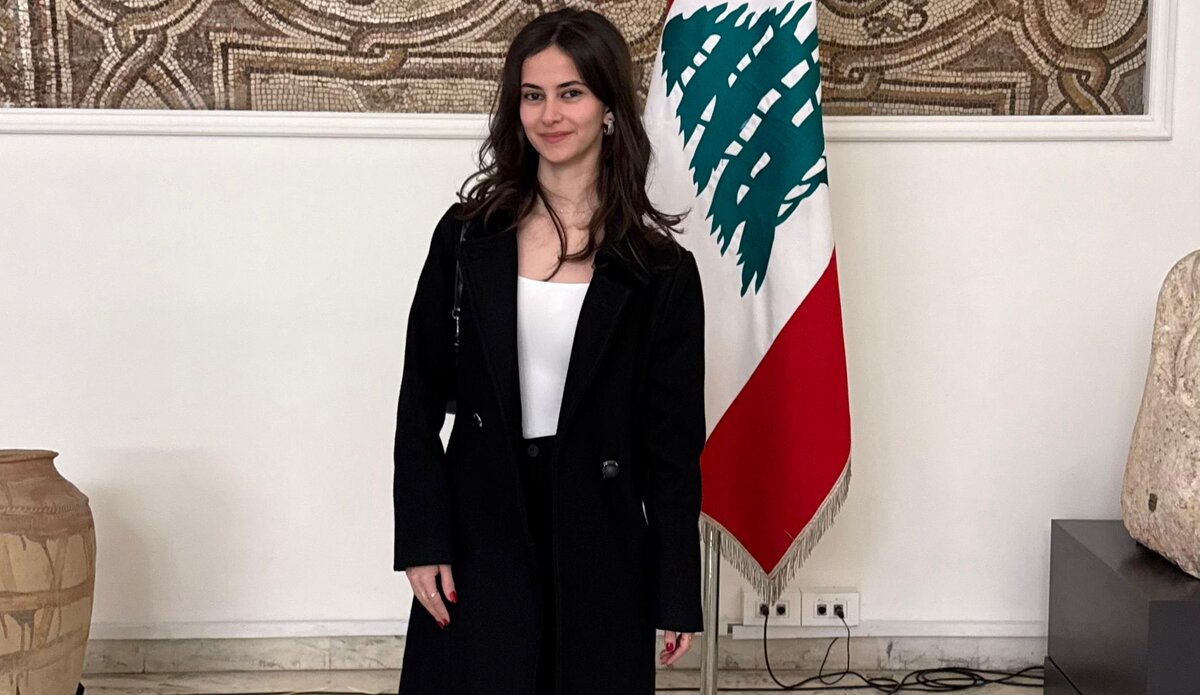UN Supported, Self-Empowered: Lebanon’s Young Women Redefine Leadership
When someone raised their voice in a room, Reem Herzallah’s instinct was always to leave. The Beirut Arab University student avoided conflict, believing that her place was to stay quiet while others dominated the conversation.
“I thought I had no role when the discussion got heated,” she admits softly. “I used to think leadership was for people louder than me.”
Today, Reem is the one guiding those conversations. “Now I know how to lead that dialogue. I understand our role as young women in shaping the spaces we belong to.”
Reem’s journey from silence to voice is not just her own; it reflects a broader transformation taking root across four major universities in Lebanon, namely the Lebanese University, Université Saint-Joseph, the American University of Beirut, and the Beirut Arab University.
Under the broader UN-led Women’s Participation in Leadership (WIPL) project, campuses have become spaces for dialogue, leadership training, and inclusive participation, helping young women step into roles where their voices truly matter.
Finding Confidence
Lebanon’s young people are coming of age amid economic downturn, political instability, and recurring conflict. For young women, the barriers to leadership are even higher.
To address this, the United Nations in Lebanon, through UN Women and UNDP, partnered with four universities in Lebanon to create safe and inclusive spaces where students could practice civic leadership. Around 250 young women joined workshops and community projects that gave them more than skills; they gave them courage.
At the American University of Beirut, Dana Al Hachem recalls how lost in her first year. “I didn’t know what to expect, and I felt completely alone,” she says. But after joining the UN-supported program, Dana began speaking up, organizing events, and even mentoring peers. “Now I love helping younger women who are like me, whether in academics, clubs, or student life.”
Role Models that Spark Change
For many, the turning point came when they met women leaders who looked like them.
“Everything shifted when I attended an UN-facilitated dialogue with MPs on women’s political participation,” says Leony Lawandos. “They didn’t just challenge the system; they claimed space in it. They showed me we don’t need permission; we already belong at the table as equal citizens.”
Another student, Jenna Kheireddine, was inspired watching MP Halima Kaakour speak out in Parliament. “We have the right to be heard not only on gender issues but on all issues,” she says. “We’re the same as men and everyone else at that table, and we deserve respect.”
Safe Spaces in a Time of Crisis
When Lebanon’s crises felt overwhelming, Nouhad Hajj from the Lebanese University found refuge in Ondes’ theater-based leadership exercises.
“Every moment we worked together, I could feel something shifting inside me,” she said. “We created a safe, non-judgmental space where everyone’s voice mattered.” Those improvised scenes revealed her power to speak truths and listen deeply. That stage became the launching pad for Nouhad’s own storytelling workshops, where solidarity turns pain into resilience.
At Université Saint-Joseph, Hala Dalloul echoes this feeling: “Despite all the challenges, we didn’t miss a single session. It became our safe space. We grew not just as students, but as changemakers.”
From Learning to Action
Students soon turned their lessons into action. At Beirut Arab University, Diana Hamo and her peers launched environmental campaigns encouraging eco-friendly habits. “It was our way of contributing to a greater cause”, she said. Others, like Sarah Youness, promoted democratic participation on campus by supporting student elections and fostering political dialogue.
Each initiative- whether on climate, equality, or civic life- was an act of agency: proof that these young women are not waiting to be invited into leadership; they are creating it.
Redefining Leadership
What unites these journeys is the reimagining of leadership itself. For these students, leadership is not about hierarchy or loud voice, it is about inclusivity, courage, and creating space for others to lead.
In a country where women hold less than 7 percent of parliamentary seats and youth voices are often sidelined, these shifts may seem subtle, but they are profound. They hint at a new kind of civic life, one where young women not only belong but also set the tone.
As Jenna puts it: “Now when I speak, I no longer wonder if I belong. I know I do, and I’ll keep that space open for others too, ensuring women are heard and respected on all issues.”
*********
These initiatives are implemented by UN Women and UNDP with the support of the Government of Canada, in close partnership with several local stakeholders.
All of these young women’s stories would not have been possible without the generous support from the Government of Canada, one of Lebanon’s top donors. Since 2016, Canada has contributed almost $540 million USD to Lebanon, strengthening protection, gender equality, social stability, food security, and health, among others. Canada is also a strong champion of pooled funding, supporting both the Lebanon Humanitarian Fund (LHF) and the Lebanon Recovery Fund (LRF). Further details on international assistance to Lebanon are available in the Lebanon Aid Tracking reports: https://lebanon.un.org/en/110415-aid-lebanon-tracking-development-aid-received-lebanon
 UN
UN










